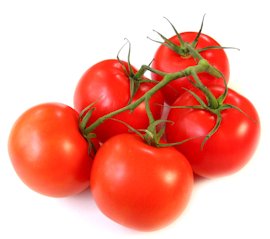
|
Some Common Myths Thought to be True - Myth 153
Myth 153: Tomatoes, Pumpkins, Cucumbers, Peas and Corn are Vegetables
In culinary terms, a vegetable is an edible plant or its part, intended for
cooking or eating raw.
|
| Tomatoes | |
|
In 1767, the meaning of the term "vegetable" was specified to mean "plant
cultivated for food, edible herb or root." The year 1955 noted the first use of
the shortened, slang term "veggie." As an adjective, the word vegetable is
used in scientific and technical contexts with a different and much broader
meaning, namely of "related to plants" in general, edible or not -as in
vegetable matter, vegetable kingdom, vegetable origin, etc. The meaning of
"vegetable" as "plant grown for food" was not established until the 18th
century.
|
|
| ⇦ Back to Myth 152 Return to Myth Choices Page 11 On to Myth 154 ⇨ | |